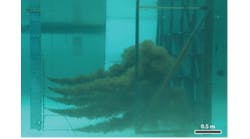Malvern Instruments, Malvern, U.K., and the Institute of Particle Science & Engineering (IPSE) at Leeds University, Leeds, U.K., have launched a joint effort, dubbed Intellisense, to address issues in particle characterization. The Intellisense project opens up a new collaborative platform, enabling industry to develop and apply both at- and in-line instrumentation and control systems in the manufacturing process, notes Leeds professor Richard Williams. A two-year pact began this summer, but Malvern, which is a maker of particle-characterization instruments, expects the relationship to be long-term, notes Duncan Roberts, the firms business development director. Many university/commercial collaborations are no more than subcontracting of research; this project is a bilateral relationship, explains Dr. Richard Tweedie, Malverns technology partnership manager. The university is providing the material science and chemical engineering skills while Malvern Instruments is providing the instrumentation skills, including software engineering, sensor development, and experience in the issues with applying sensors in real industrial situations (i.e., regulatory, interfacing, safety and practical issues).The company is supplying more than £100,000/year in funding. Eight researchers should be working on projects by the end of the first year and 10 by the end of the second year, says Roberts. We currently have six projects operating under the Intellisense umbrella, but would hope to increase this to ten within the first two years, he notes.Projects will look at enhanced measurement, enriched sensor information, multi-scale characterization and modeling, advanced characterization metrics, and challenges posed by new products and processes, says Tweedie. An initial focus will be on issues related to pharmaceuticals, such as how particle morphology affects pharmaceutical efficacy, Roberts notes. Intellisense will strive to get inputs from pharmaceutical and chemical firms on generic problems they face, he says, adding that some pharmaceutical companies already have shown interest.Research activities will be centered at Leeds, but some work probably will be done at universities elsewhere, including in North America, he says.The first deliverables should come by mid-2006, reckons Roberts, and likely will relate to data processing, particularly how to make the best use of data already provided by instruments.
Latest from Separations Technology
Latest from Separations Technology
